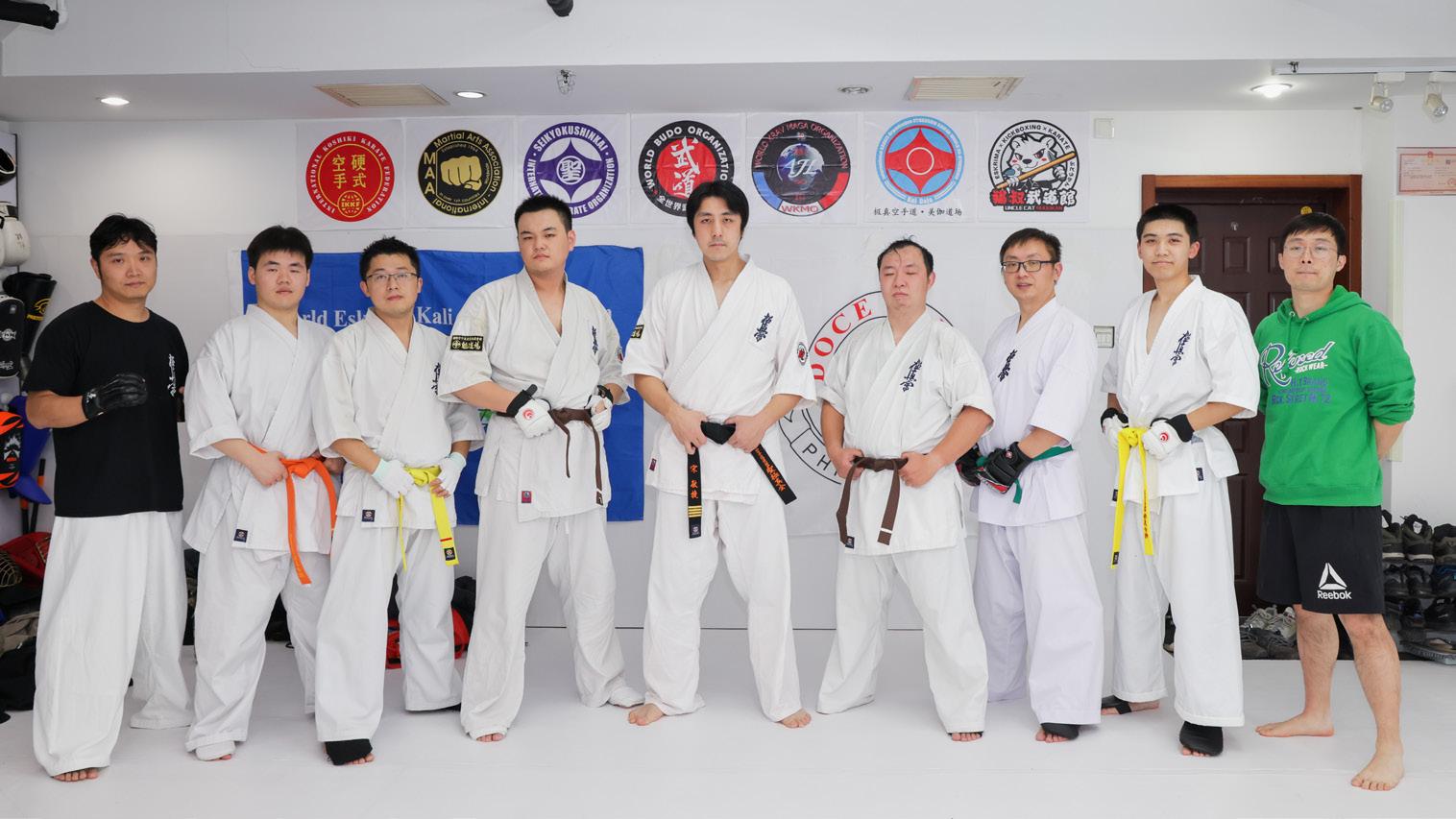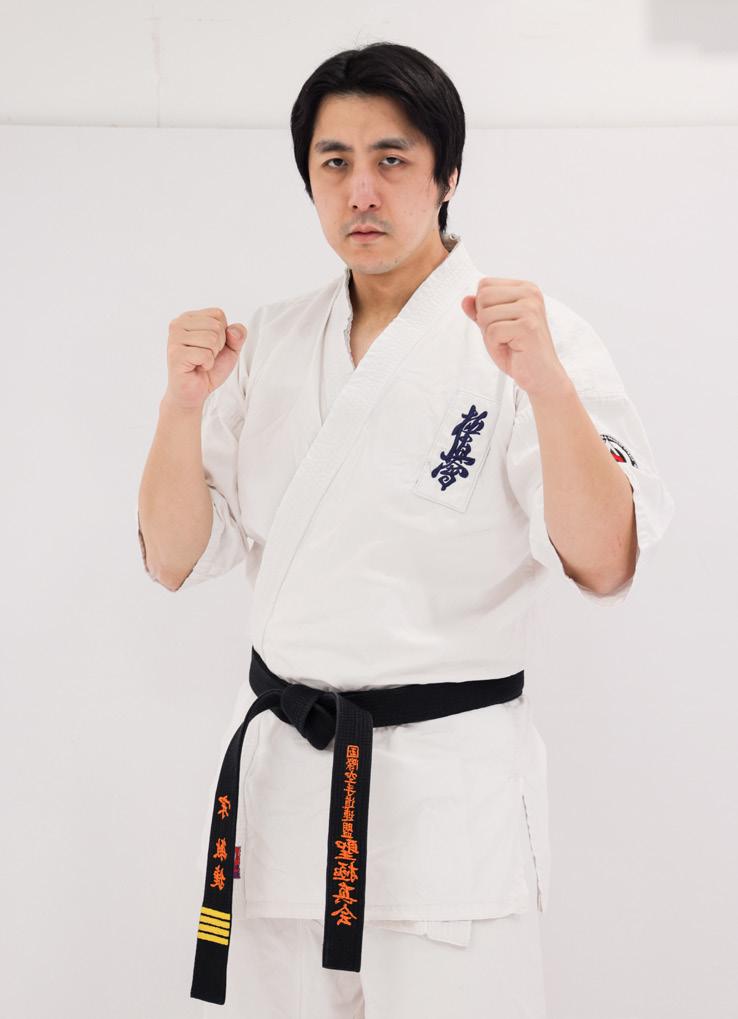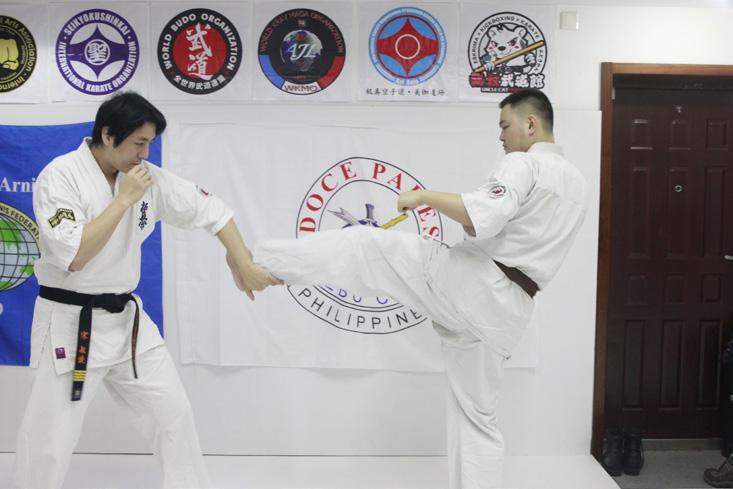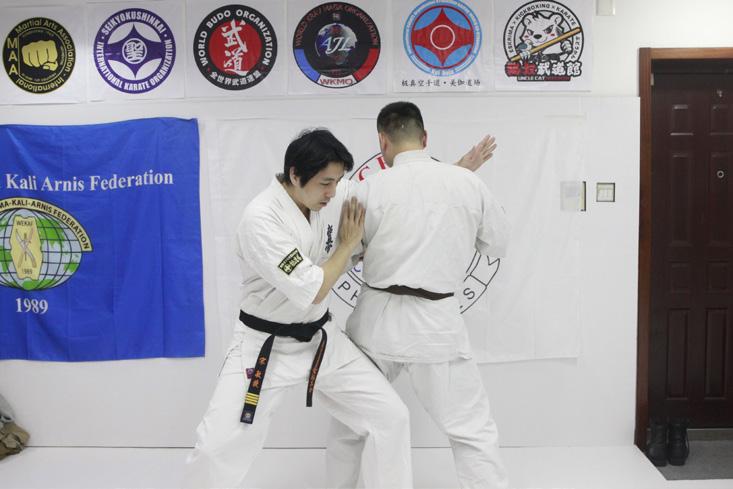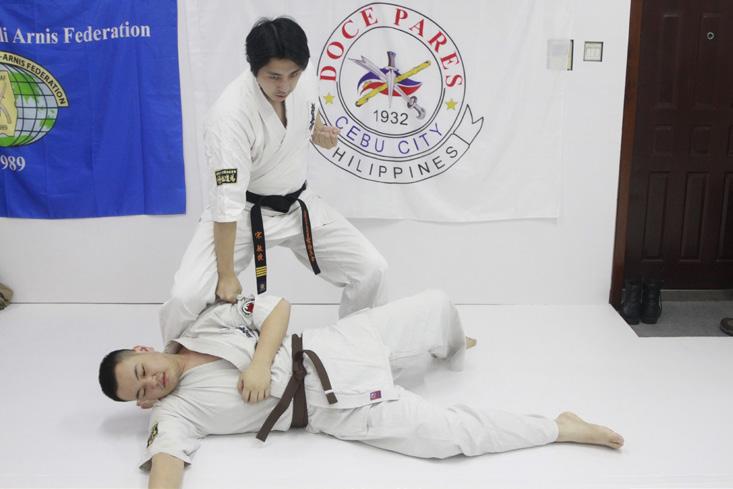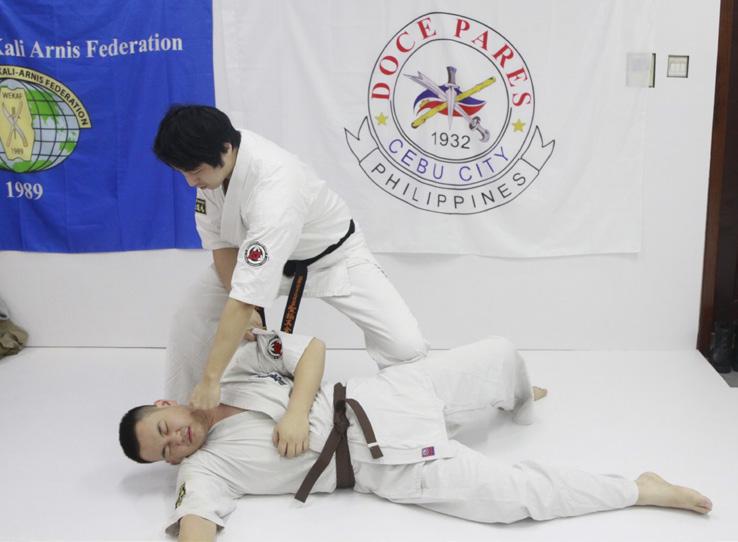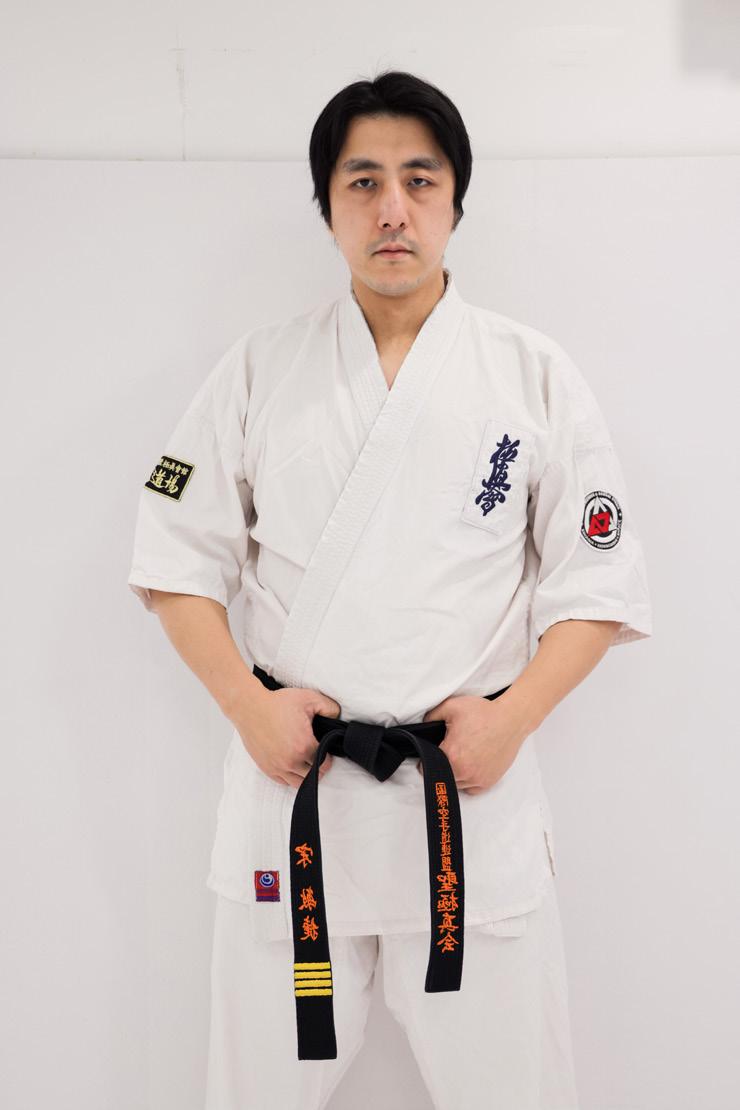
3 minute read
LEARN AS COMPLETE A KARATE AS POSSIBLE SENSEI Song Minjie
"Learn as complete a karate as possible" Sensei Song Minjie
My name is Song MinJie and I am a Chinese karate instructor. Currently I am Kyokushin Karate 4th Dan, Freestyle Karate 5th Dan, Kenpo Karate 7th Dan. Also I have studied Ashihara Karate and European Full Contact Self Defense Karate.
Advertisement
I have won the top three in the China Open Karate 4 times and a runner-up in the Shanghai Karate Championships in China. Also, I have won the Kickboxing Open Championship in Shanghai, China for 4 consecutive years. Although I have competed in karate, I have never been obsessed with victory and results. Next, I will talk about my own experience, why I recommend everyone to learn full karate, not just competitive karate. Karate is an oriental martial art originated in China and developed in Japan. Therefore, it also contains many philosophies and ideas of ancient Chinese martial arts.
Commercial modern fighting was only born to compete and entertain the audience, and their technology was all developed around the rules of fighting competition. But karate is different. Karate was not created for competition. It is a skill of fighting under unregulated conditions, and naturally it also contains many concepts and ideas of fighting under unruly conditions.
Now, more and more karate Dojos are teaching only simplified versions of karate. In order to quickly get the results of the competition in order to promote their Dojo, they let their students only practice competition skills. More and more karate fighters and trainers are unaware of the purpose of KiHon (basic) and Kata (form) practice.
Regardless of the style of karate competition rules, appropriate rules will be formulated on the premise of viewing and safety, which will make many karate skills unusable. However, if you don't practice these techniques outside of competition, the karate you learn will lose its usefulness. Many of the techniques of karate can be used for self-defense or to protect others. Also, many of the techniques in KiHon and Kata can be used in conjunction with weapons. (regardless of the style) and none of these techniques can be used in competitions. Mas Oyama, the founder of Kyokushin Karate, once spread karate to the US Military Academy at West Point and the FBI, and has made these techniques available to this day. Military and police departments in many countries also practice different styles of karate.
Soldiers and police officers don't need to learn how to compete in competitive competitions. What they need are those skills of self-defense and protection of others, as well as skills that can be combined with weapons. Of course, the same goes for civilians, and it is always only a small number of people who will become contestants. In fact, if you just want to win in the ring, maybe it's more appropriate to just practice modern combat like Kickboxing.
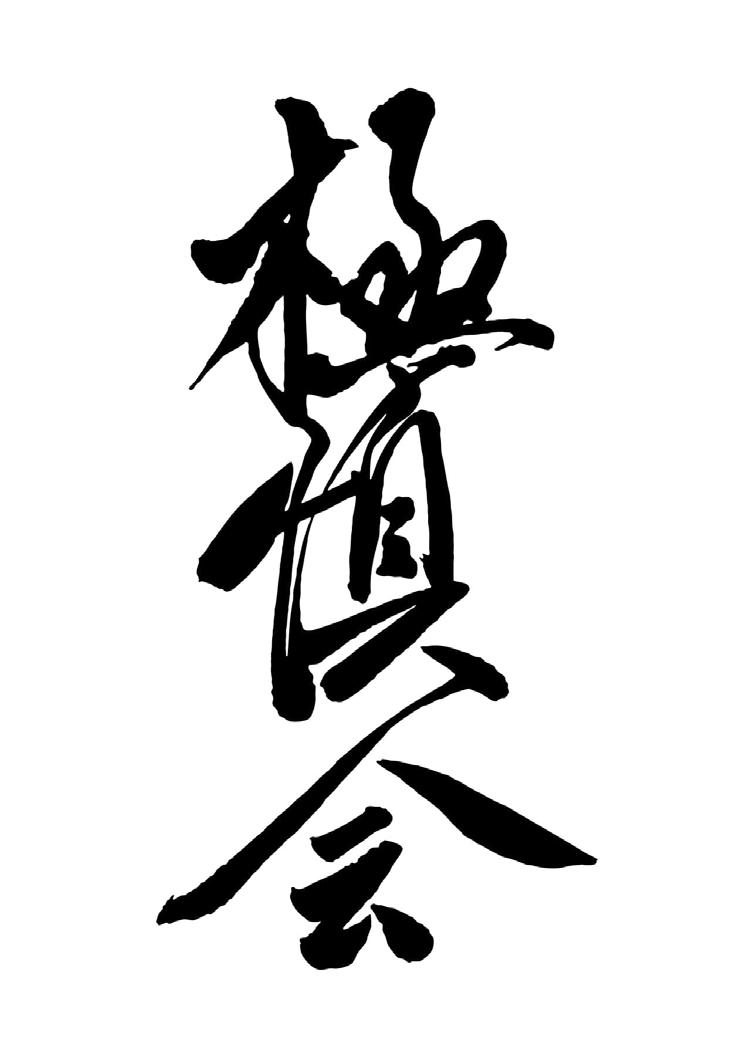
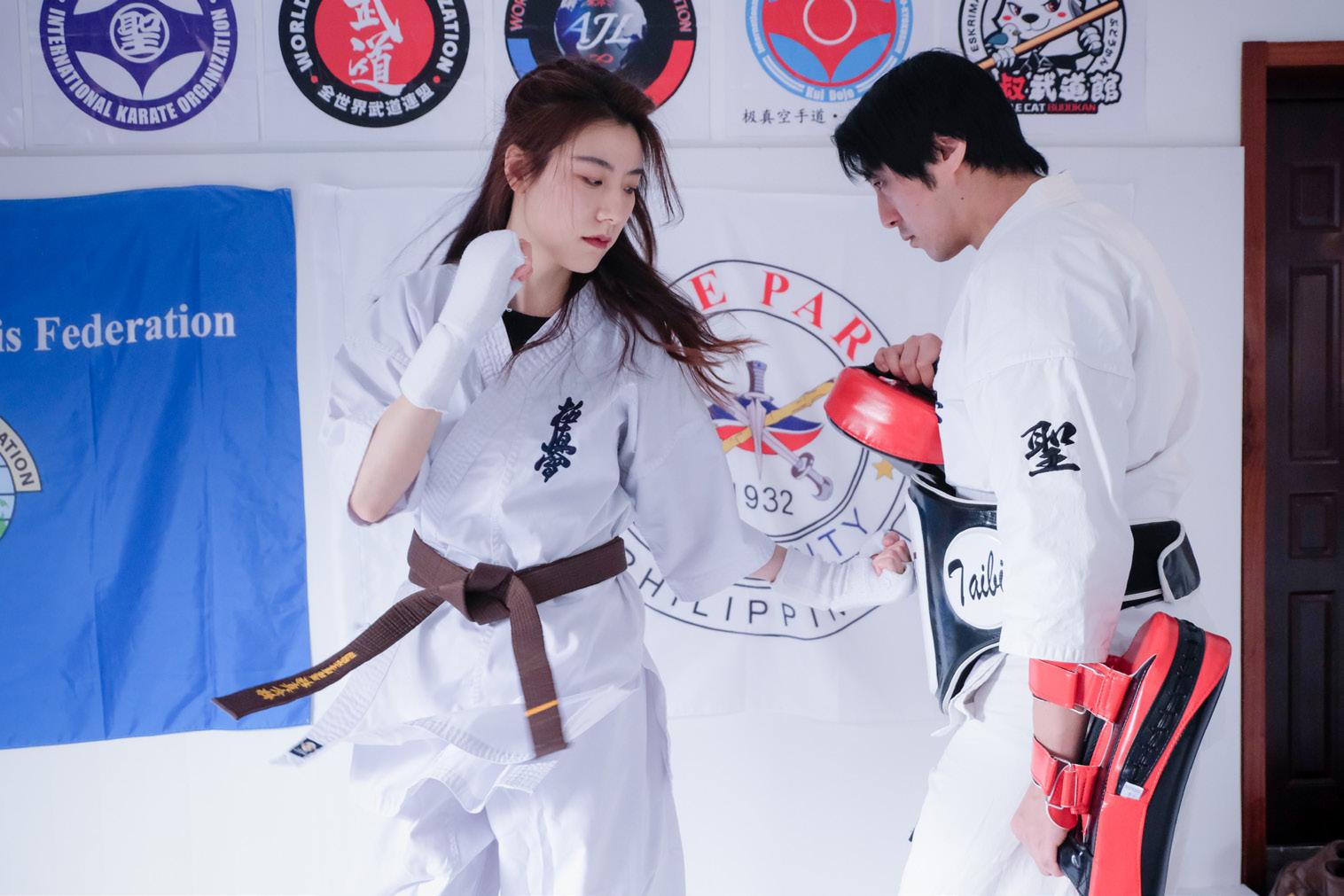
In addition, in competitive sports, athletes often damage their own health in exchange for competition results. Many fighters are plagued by injuries, and sports injuries in the past will become more obvious with age. If you are blindly obsessed with winning the competition, it means that you have to increase the amount of training, which is bound to cause all kinds of problems in your body. This is the result of completely contradicting the philosophy of karate. Because karate is not only a fighting technique, but also a means of exercise to promote human health. As a coach, it is very inhumane if you make your students sacrifice their health to practice karate for your own benefit.
To sum up, whether you are a karate instructor or a karate student, I hope you can practice full karate instead of only competitive karate. Because karate is a great martial art, it involves self-defense, fitness, and competition. If you can only compete, I'm afraid you only learned a third of karate.
